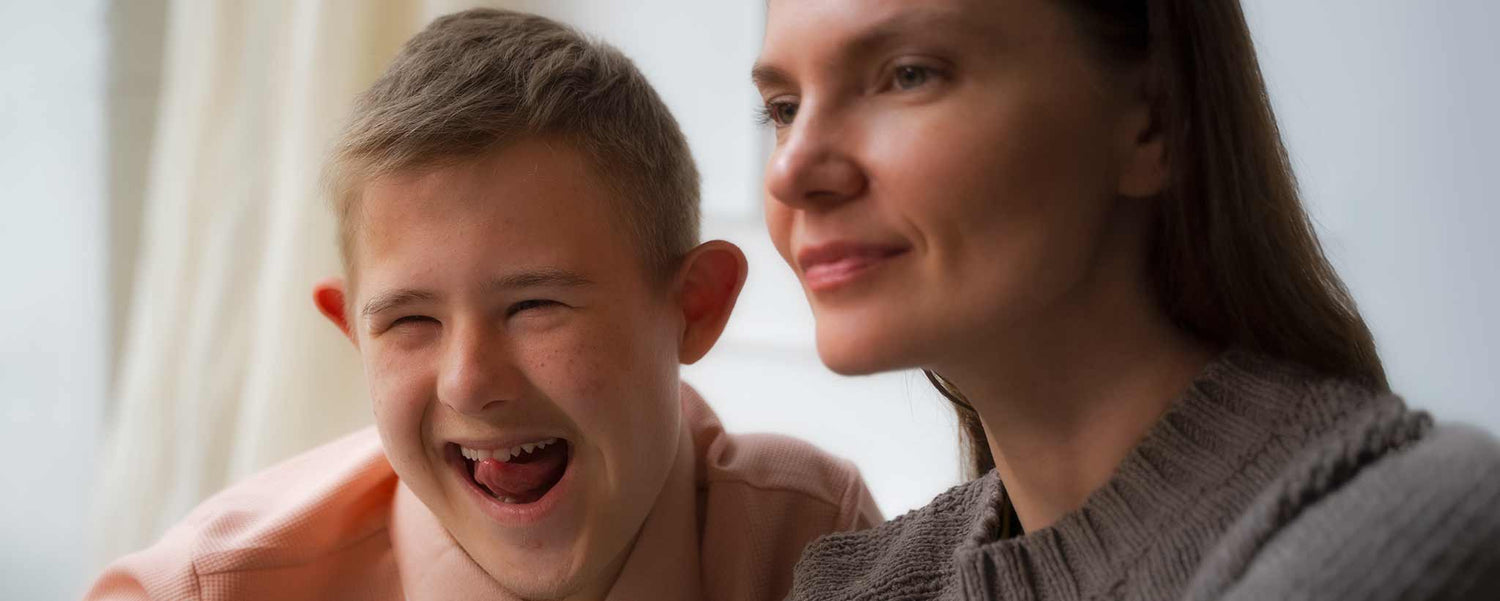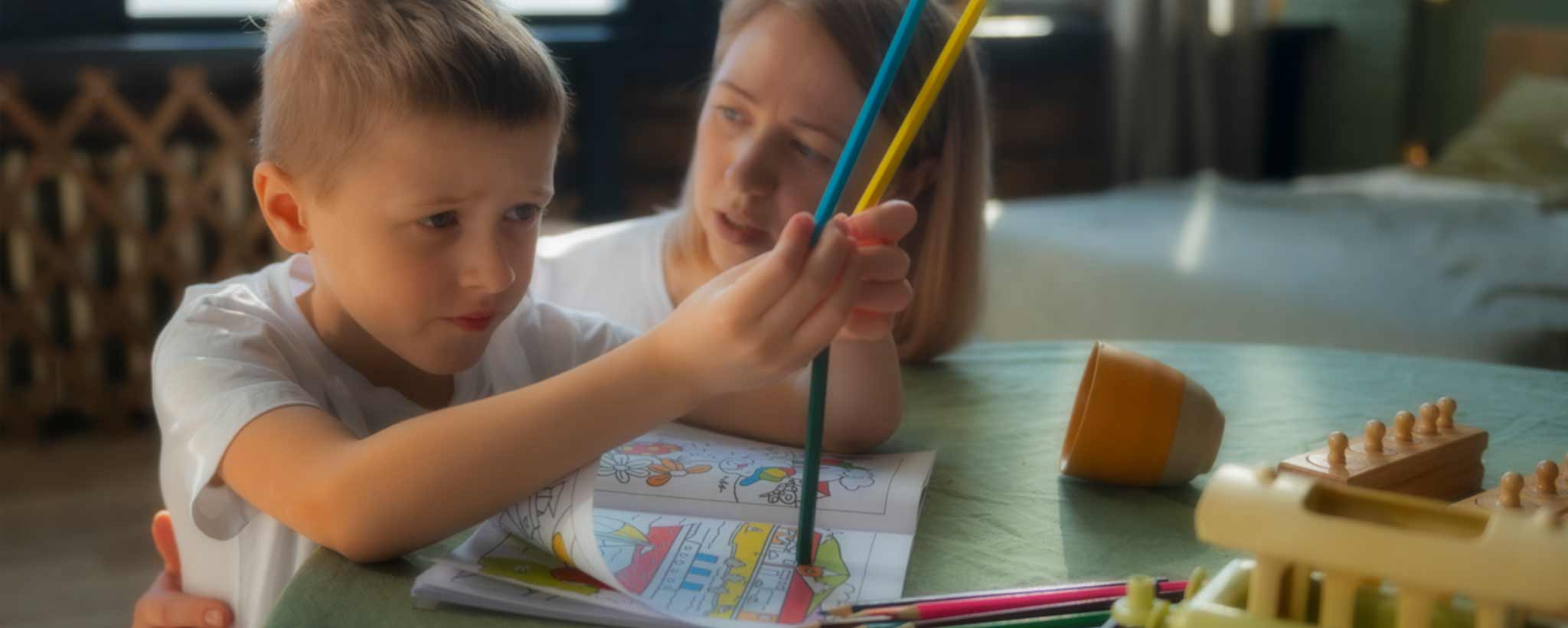Break the stigma surrounding Down syndrome and gain a deeper understanding of this often misunderstood condition.
What is Down Syndrome?
March 21 is Down syndrome day
Down syndrome is a genetic condition that occurs when there is an extra copy of chromosome 21. It affects approximately 1 in every 700 babies born in the United States. A 2021 estimate puts the number at about 250,000 individuals living with Down syndrome in this country. While Down syndrome can occur in any pregnancy, the risk of having a baby with it increases with maternal age.
The syndrome impacts a person’s physical and intellectual development. Some common physical features of Down syndrome include upward-slanting eyes, a flattened nose, a small head, and a shorter stature. Individuals with Down syndrome may also have intellectual disability, delayed development, and a higher risk for medical conditions such as congenital heart defects, hearing loss, and vision problems.
The characteristic physical features of Down syndrome are genetic factors, not amenable to correction through cosmetic surgery. In addition, they may be more prone to complications from surgery and anesthesia, which increases the risks associated with cosmetic procedures.
It is important to note that the physical features associated with Down syndrome are a natural part of the individual's appearance. They do not require alteration for them to lead happy and fulfilling lives.
Higher Odds for Down Syndrome Birth
According to the American College of Obstetricians and Gynecologists, the risk of having a baby with birth defects like Down syndrome is approximately:
- 1 in 1,250 at age 25
- 1 in 1,000 at age 30
- 1 in 400 at age 35
- 1 in 100 at age 40
- 1 in 30 at age 45
- 1 in 10 at age 50
The risk continues to increase with maternal age, and by age 49, the risk is approximately 1 in 10. Women who are planning to have a baby at an older age are typically advised to consider genetic counseling and prenatal testing to help assess their risk and make informed decisions about their pregnancy and birth plan.
Effect of Career Prioritization
In recent years, more women have been delaying pregnancy and prioritizing their careers. While this has many benefits, it can also lead to an increased risk of having a baby with Down syndrome. According to a study published in the Journal of Obstetrics and Gynaecology Canada, the percentage of women over age 35 who gave birth to a baby with Down syndrome increased from 25% in 1986 to 41% in 2011.
Available Detection Methods

There are several methods available to detect Down syndrome during pregnancy, including noninvasive screening tests and diagnostic tests. Noninvasive screening tests, such as cell-free DNA testing and maternal serum screening, can help assess the risk of having a baby with Down syndrome without the need for invasive procedures. Diagnostic tests, such as amniocentesis and chorionic villus sampling (CVS), can provide more definitive results but carry a higher risk of complications.
Down Syndrome Challenges
While individuals with Down syndrome may face certain challenges, they also have many strengths and abilities. According to the National Down Syndrome Society, individuals with Down syndrome are known for their social and emotional strengths, including empathy, kindness, and resilience. Many individuals with Down syndrome also have unique talents and abilities, such as music, art, and athletics.
Notable Down Syndrome Careers
Individuals with Down syndrome have many strengths and abilities and can pursue successful careers in various fields. Here are some notable examples:
- Chris Nikic: In November 2020, Nikic became the first person with Down syndrome to complete a full Ironman triathlon.
- Karen Gaffney: She is a swimmer and disability rights activist who has swum across the English Channel and advocated for the inclusion of individuals with Down syndrome in all aspects of society.
- Lauren Potter: She is an actress best known for her role as Becky Jackson on the TV show Glee.
- Madeline Stuart: She is a model and fashion designer who has walked the runway at New York Fashion Week and appeared in various advertising campaigns.
- John Franklin Stephens: He is a writer, speaker, and advocate for individuals with intellectual disabilities. His essay “The R Word” went viral and helped raise awareness about the harmful effects of using the word “retard” as a slur.
These individuals serve as inspiring role models for others with Down syndrome and demonstrate the potential for success and achievement in a variety of fields.
Tips for Parents With Down Syndrome Child
- Connect with other parents: Seek out support groups and online communities of other parents of children with Down syndrome. This can provide a sense of community and support as you navigate the challenges and celebrate the achievements of your child.
- Seek out early intervention services: Early intervention services, such as physical therapy, occupational therapy, and speech therapy, can help address any developmental delays or challenges your child may face.
- Celebrate your child’s strengths: Focus on your child’s strengths and abilities, and encourage them to pursue their interests and passions. This can help build self-esteem and confidence.
- Advocate for inclusion: Encourage inclusive practices in your child’s school and community, and advocate for your child’s rights to equal access and opportunities.
- Take care of yourself: Caring for a child with Down syndrome can be challenging, so it’s important to take care of yourself and seek out support when needed. This may include taking breaks, prioritizing self-care, and seeking out professional counseling or therapy.
Can Those With Down Syndrome Marry?
It is not common for individuals with Down syndrome to marry each other, as they often have difficulties with communication, social skills, and independence. Additionally, individuals with Down syndrome are often advised against having children due to the increased risk of passing on the condition to their offspring.
In cases where two individuals with Down syndrome do have a child together, their child has a 50% chance of also having Down syndrome. This is because Down syndrome is caused by an extra copy of chromosome 21, and each parent with Down syndrome has two copies of this chromosome, which increases the likelihood that their child will inherit an extra copy.
It is worth noting that individuals with Down syndrome have the same rights as everyone else to form intimate relationships, get married, and have children if they choose to do so. However, they need to receive appropriate education, support, and healthcare to ensure that they understand the potential risks and can make informed decisions.
Plan for Ongoing Care
It is not uncommon for parents to care for their children with Down syndrome throughout their lives, as such individuals require ongoing support to assist with daily living tasks. However, there may come a time when a parent is no longer able to care for their adult child due to age, illness, or other circumstances. A range of options is available for support and care. These may include:
- Group homes or residential care facilities are specifically designed for individuals with disabilities, including Down syndrome. These facilities offer a range of services and support, including meals, medical care, and social activities.
- In-home care services, where trained professionals come to the individual's home to assist with daily living tasks, such as cooking, cleaning, and personal care.
- Community programs and support services, including recreational activities, job training, and socialization opportunities.
- Financial assistance and benefits, including Social Security disability benefits, Medicaid, and other government programs.
It is important for families of individuals with Down syndrome to plan for their long-term care needs and to explore the available options for support and assistance. This can help ensure that individuals with Down syndrome continue to receive the care they need throughout their lives.
Those with Down syndrome have many strengths and abilities. They can pursue successful careers in various fields. As a parent of a child with Down syndrome, seek out support and resources. Celebrate your child's strengths by advocating for inclusive practices with equal access and opportunities.
Enjoy more articles about disability
ClinicalPosters offers human anatomy charts, scientific posters, and other services that compliment articles about disability. Slide extra posters into DeuPair Frames without removing from the wall.
Show your support by leaving an encouraging comment to keep the research going.
Support the writing of useful articles about disability by exploring human anatomy charts, scientific posters, and other products online. You may sponsor specific articles.
ClinicalPosters provides human anatomy charts, scientific posters, and other products that compliment useful articles about disability.
ClinicalPosters offers human anatomy charts, scientific posters, and other products online.
You can sponsor useful articles about disability or donate to further research. Visible content is optimized for device size.
UPDATED 2025 – This article reflects editorial revisions since its original publication.
FAQ: Why Down syndrome is on the rise
How common is Down syndrome?
It affects approximately 1 in every 700 babies born in the United States (about a quarter of a million in 2021).
What are some characteristics of Down syndrome?
It affects physical and intellectual development. Common physical features of Down syndrome include upward-slanting eyes, a flattened nose, a small head, and a shorter stature.
What are the odds of giving birth to a child with Down syndrome?
According to the American College of Obstetricians and Gynecologists, the risk of a woman having a baby with birth defects like Down syndrome is 1 in 1,250 at age 25, 1 in 400 at age 35, and 1 in 30 at age 45.
How can doctors tell if an infant will be born with Down syndrome?
Noninvasive screening tests can help assess the risk. Amniocentesis and chorionic villus sampling can provide more definitive results, but carry a higher risk of complications.
What are the positive characteristics of people with Down syndrome?
Although they face challenges, according to the National Down Syndrome Society, individuals with Down syndrome are known for their social and emotional strengths, including empathy, kindness, and resilience.
How can parents plan for long-term care of children with Down syndrome?
There may come a time when a parent is no longer able to care for their adult child due to age, illness, or other circumstances. Consider in-home care services, group homes, Social Security disability benefits, Medicaid, and other government programs.





